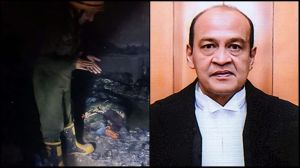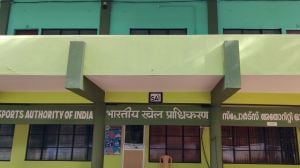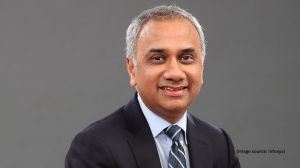Let146;s hope July sees real progress
As I wing back home, thoughts are again on budgets and development policy making, with a Planning Commission in place. Once the ink is dry o...

As I wing back home, thoughts are again on budgets and development policy making, with a Planning Commission in place. Once the ink is dry on the budget, which includes the annual plan and 8212; more important the thinking on economic policy 8212; the scope for change is there but, in the short-term, limited. At this juncture of our history, even the short term is important. Even a year is too long a time to lose.
In a way, this is not fair to the policy makers, in the sense they have less time. But then they are experienced people and the demands of the day are not for the faint-hearted. Good solutions come from understanding. I was once asked when I was in the Planning Commission whether I published government documents because at heart I was a professor. That is only part of the reason. To address real issues like agriculture, electricity, rural credit, education and health, there are literally lakhs of people who are actors. If they don8217;t understand what we are doing and why we are doing it, they won8217;t do it well. So the 8216;Economic Survey8217; is important, the Budget Speech is important and, before the Planning Commission went into hibernation, the Annual Plan was important, not only for the solutions they give, but the understanding of the problems that have to be solved.
In spite of all that we have gone through, a certain sense of professionalism underscores our economic and statistical thinking base. With some exceptions, the 8216;Economic Survey8217; can be taught in a graduate class without guilt. Once upon a time, the Annual Plan would give us the Planning Commission8217;s worldview on the year. This was developed in the mid-8217;70s by Jayanta Roy, now back in India with the late Manohar Rao. In 1979 the Commission put it this way: 8220;Since 1978-79, the Commission has tried to widen the scope of the Annual Plan to take a view of the development of the national economy as a whole, so that it becomes the annual segment of the five year plan8221;. It went on to say: 8220;The macro projections of the expected performance of the Indian economy in 1979-80 and the quantities of physical outputs are linked together by a short term forecasting model,8221; it said.
The Planning Commission must now move away from diktats and financial allocations to strategic thinking on reform and their view on the economy must come during the year and not after it, as is the case now. India has grown in the 8217;90s and looking in detail at the CSO8217;s national accounts I can truthfully say that the growth is as it was in the 8217;80s, perhaps a little lower, unless you monkey around with years, but agriculture is doing badly, the decline in poverty levels has almost stopped as also the diversification of the economy and particularly of its agricultural and rural sectors. Rural credit and capital formation are in the doldrums and the electricity and water sectors have stagnated since 8217;97-8217;98, growing at two-three per cent rather than double that rate earlier.
The costs of not doing better on widespread growth are there for all to see. States which account for two-fifths of the country8217;s population are either stagnant or doing worse. This has to be the year of reckoning, of decisive understanding and strong reform policies to link larger opportunities to workers and farmers.
On crops we need clear road maps of reform and the profitability of agriculture must improve or the farmer will not invest further. On water and credit, we need a clear set of targets at the agro-climatic level for water harvesting, taking water from existing canals to the farmer and completing projects. The idea of concentrating on grandiose projects needs a decent burial, although the ones the National Commission on Perspectives for Water Development found good must be operationalised. The National Electricity Grid and the Road Grid are good ideas, if supplemented with regional links. The idea of making the rivers go from north to south or the other way, when they go east-west or west-east is an affront to Indian civilisation which developed on the river bank. Workable models on small industry, education and health have to be implemented. We know that artisan skills linked with national and global models create sustainable employment. Such leadership in Surat created a million jobs around diamond cutting and other links and was prosperous enough to keep the rioters at bay.
Local leaders have to be unleashed to solve education, health and slum problems. We won8217;t start everything this year leave aside solve them, but at least we must kickstart the process. Hopefully July will be the month of positive debates.
- 01
- 02
- 03
- 04
- 05































